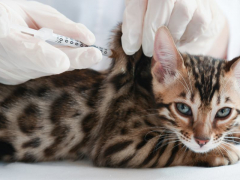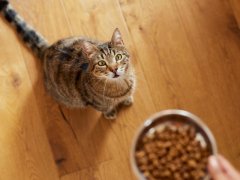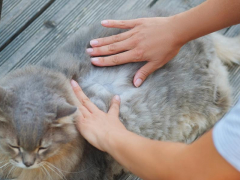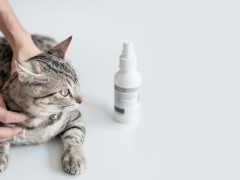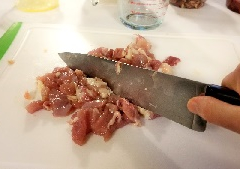
Solensia is an injectable medication that’s FDA-approved for use in cats to bring relief from arthritis pain. In this article, you’ll learn what Solensia is, how it works, potential side effects, and frequently asked questions.
Solensia for Cats Overview

About Solensia for Cats
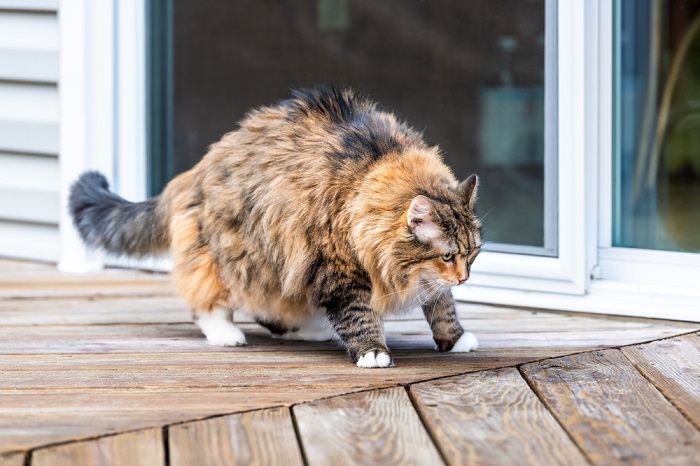
The brand name for frunevetmab, Solensia is a drug used to help cats with osteoarthritis.
Solensia is a brand name for frunevetmab, manufactured by Zoetis. Frunevetmab is a felinized immunoglobulin monoclonal antibody.
An antibody is a protein created by the immune system to target a particular substance. Usually, we think about antibodies against something like a virus, which helps the body avoid or quickly eliminate a viral infection.
A monoclonal antibody is a synthetic antibody that is designed to target only one specific substance. Felinized simply means that the monoclonal antibody is designed to work specifically in a cat’s body and cannot be used in other animal species.
As a monoclonal antibody, Solensia’s target substance is something called nerve growth factor (NGF). In adult animals, NGF is elevated in response to injury, disease, and noxious stimuli and contributes to neurogenic inflammation and increased perception of pain.
NGF has been found in both humans and other animal species to be involved with types of chronic pain, such as that caused by osteoarthritis (OA), where NGF has been found to be elevated in arthritic joints.
Frunevetmab works by binding to NGF, thereby preventing NGF from binding to other receptors that are involved with furthering signals of pain and inflammation.
Solensia is FDA-approved for use in cats specifically for the treatment of pain associated with feline osteoarthritis. It is available only as an injection that is given under the skin at a veterinary clinic once a month.
Also Read: Arthritis In Cats: Causes, Symptoms, & Treatment
What Does Solensia Do for Cats?
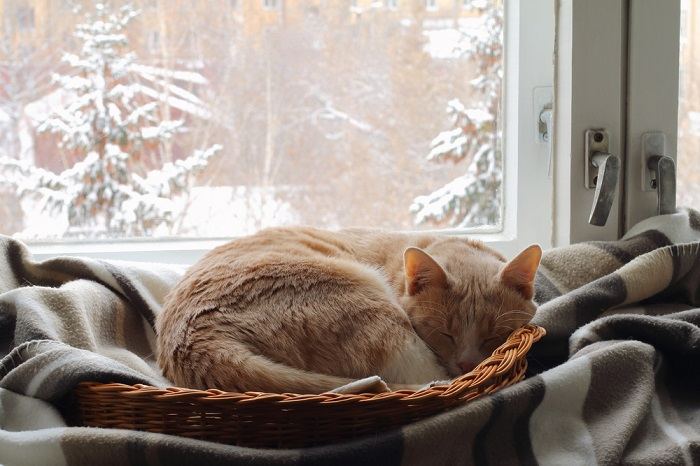
By binding to nerve growth factor (NGF) and preventing it from binding to receptors involved in the pain response, Solensia helps to keep your cat from experiencing the pain associated with osteoarthritis.
In recent years, it has become more apparent through research studies that osteoarthritis (OA) is more common in cats than previously thought. Studies have shown that although cats may have x-ray evidence of arthritis, far fewer of those cats show obvious signs of pain and decreased mobility at home. This can make arthritis in cats difficult to appreciate at home, or diagnose during veterinary visits.
But the treatment of arthritis is also challenging for cats and their caretakers. No non-steroidal anti-inflammatory (NSAID) medication is approved for safe long-term use in cats, and the use of steroids has fallen out of favor given the association between long-term use and a higher risk of side effects.
Pain medications, like gabapentin or buprenorphine, may often be considered. But while they can reduce pain and help with comfort, they do not target the underlying joint inflammation causing the pain.
Orally medicating cats can also be challenging, so even in cases where a pain medication, such as gabapentin, can be used long-term to manage pain, the high affinity for many cats to sniff out medication hidden in food or treats as well as the difficulty of pilling/medicating directly by mouth can lead to major consistency problems with treatment at home.
Solensia provides a potential solution to many of these concerns with a focused drug that appears to be very well tolerated for longer-term use, even in older cats, as well as eliminating the oral route entirely since the injection must be given at the vet’s office.
According to early studies, a single Solensia injection provided significant pain relief as evidenced by increased activity for up to 6 weeks in cats with degenerative joint disease (DJD). Based on owner assessments alone, about ¾ of cats receiving 3 doses of Solensia were considered to be treatment successes.
While still a newer product as of the time of this writing, Solensia appears to be the first drug of its kind that can be tolerated by cats for long-term use for joint pain and inflammation with the added bonus of eliminating the stress and compliance issues of medicating at home.
Also Read: 12 Warning Signs Your Cat Is In Pain And Crying For Help
Side Effects of Solensia for Cats
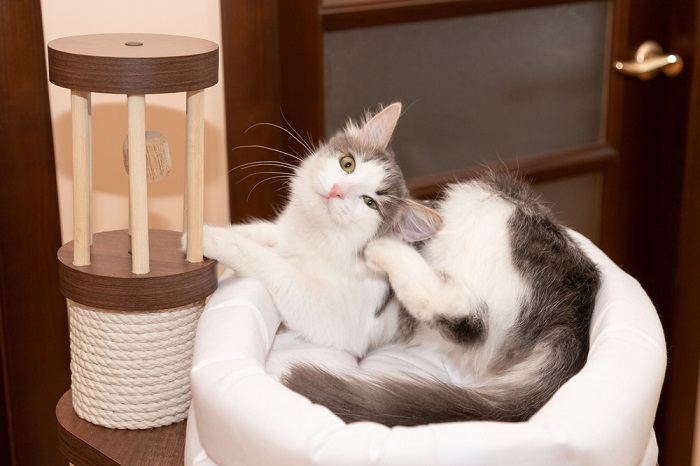
Several side effects have been reported for Solensia for cats.
Solensia has not been evaluated in cats less than 7 months of age or weighing less than 5.5 lb (2.5kg).
In cats, gastrointestinal signs appear to be the most commonly reported, though still relatively uncommon. According to the manufacturer, in a field trial involving nearly 200 cats over the course of about 3-4 months, vomiting was the most often reported at 13%. Diarrhea and loss of appetite were the next most common, at about 6.5%.
Injection site discomfort was noted in about 11% of cats. This was further explained to be seen as flinching noted occasionally, and most frequently with the first dose.
Local reactions at the injection site were reported in about 3-6% of cats. These reactions included scabbing, red skin, hair loss, swelling at the site, and itching/scratching.
Abnormal behavior was noted in about 6.5% of cats. This was clarified to be behavior recorded as being abnormal for the individual cat (about 12 of them in the study) but not any kind of recognized disorder.
Early studies for Solensia appear to largely demonstrate safety for cats in terms of kidney function, including cats with early-stage IRIS 1 or 2 of chronic kidney disease, though a small number of cats did have some mild changes in kidney lab parameters.
Twelve of the cats in the study showed evidence on lab work of worsening of existing mild kidney disease. In a separate safety study looking at Solensia use in a small group of very young cats, bloodwork creatinine values were seen to increase within the normal range, but never exceeded the upper limit of normal.
In a pilot clinical study published in Frontiers in Veterinary Science in 2021 titled “Efficacy and Safety of an Anti-nerve Growth Factor Antibody (Frunevetmab) for the Treatment of Degenerative Joint Disease-Associated Chronic Pain in Cats: A Multisite Pilot Field Study”, Solensia was used in 126 client-owned cats with a mean age of 12-13 years. The authors indicated that about half of the cats in the study, just given their age, were in stage II of chronic kidney disease.
Of those cats in the study receiving Solensia injections, two had elevations in lab work parameters while still staying at the same level of kidney disease, with one cat increasing to stage 3 of kidney disease.
Other side effects mentioned by the manufacturer were seen in about 4% or less of cats.
As of this writing, Solensia has not been studied in combination with other medications, including NSAIDs.
Solensia should not be used in pregnant or lactating queens.
If you are ever concerned that your kitty may have developed side effects following a Solensia injection, make sure to contact your veterinarian, the ASPCA Animal Poison Control Center (1-888-426-4435), or Pet Poison Helpline (1-855-764-7661) immediately for further advice.
The use of monoclonal antibodies is relatively new within the last several years but shows much promise in both human and animal medicine. However, a phenomenon called immunogenicity has been seen. Immunogenicity occurs when a patient’s body develops its own antibodies to the monoclonal antibody drug, thereby making the drug less effective over time.
In a study mentioned by the manufacturer, immunogenicity was detected in only 4 cats out of about 260 total cats.
Also Read: The Best Homemade Cat Food Recipes For Kidney Disease
Solensia for Cats Dosage
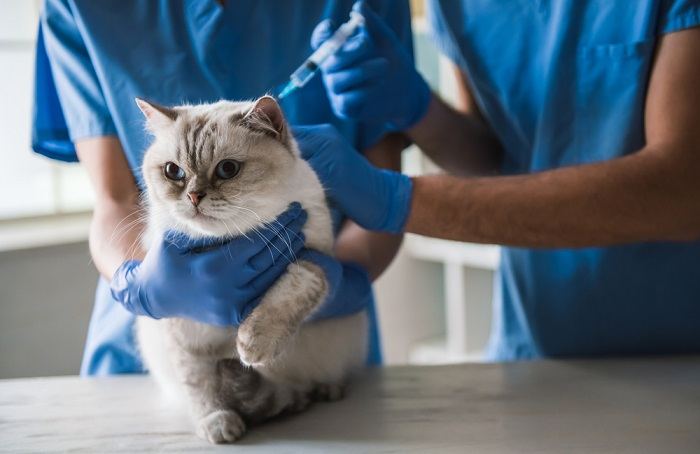
Solensia must be administered by a veterinarian or a trained veterinary staff member under a vet’s supervision.
Solensia is FDA-approved for use in cats, but can only be administered legally by a veterinarian or a trained veterinary staff member under the supervision of a DVM.
Dosing of Solensia is based on weight and is injected subcutaneously under the skin once a month. Each 1ml vial of Solensia contains 7 mg of frunevetmab. Cats weighing 5.5 to 15.4 lb (2.5-7 kg) receive one vial with cats exceeding 15.5 lb receiving two vials.
Following an initial dose, Solensia is designed to be continued as a monthly injection.
Also Read: What Can You Give A Cat For Pain? 6 Vet-Recommended Options
Conclusion
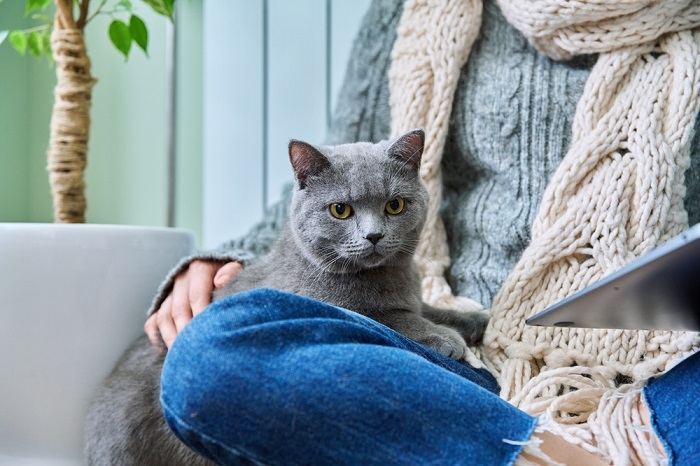
A relatively new medication at the time of this writing, Solensia is approved for use in cats to help ease pain and inflammation in cats with osteoarthritis.
Solensia is an injectable medication approved for use in cats to treat osteoarthritis. It provides the only current longer-term treatment option for cats that can address both pain and components of inflammation arthritis causes.
The long-acting injection also eliminates the need for oral dosing, which can be difficult for many kitties and their caretakers. Though it is still relatively new, early pilot field and safety studies suggest Solensia has a favorable safety profile.
Also Read: Drug Poisoning In Cats: Causes, Symptoms, & Treatment
Drug Dosing Disclaimer: We are only able to provide doses for medications that are FDA approved for use in cats and only as the label guidelines dictate. For medications that are used off-label we can only provide guidelines and safety information for use. Safe and appropriate dosing for off-label medications can only be determined by a primary care veterinarian.
We encourage you to work with your veterinarian to determine if a particular medication is appropriate for your cat. Changing or adjusting a dose for your cat on your own without consulting with a veterinarian can carry risk. We do not encourage use of medications prescribed for human use in pets without first consulting with a primary care veterinarian.
-
Plumb DC. Solensia. Plumb’s Veterinary Drugs. https://app.plumbs.com/drug-monograph/63pFWDHM97szCqfCZvcAKh. Updated July 2022. Accessed January 2023.
-
SOLENSIA - Frunevetmab Injection [US Product Label for Cats]. Zoetis Inc.; 2022.
-
Gruen ME, Myers JAE, Lascelles BDX. Efficacy and Safety of an Anti-nerve Growth Factor Antibody (Frunevetmab) for the Treatment of Degenerative Joint Disease-Associated Chronic Pain in Cats: A Multisite Pilot Field Study. Front Vet Sci (2021)8:610028. doi: https://doi.org/10.3389/fvets.2021.610028
